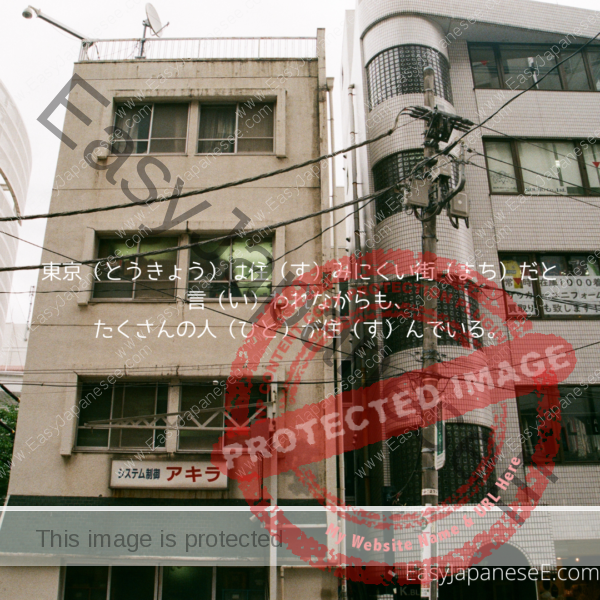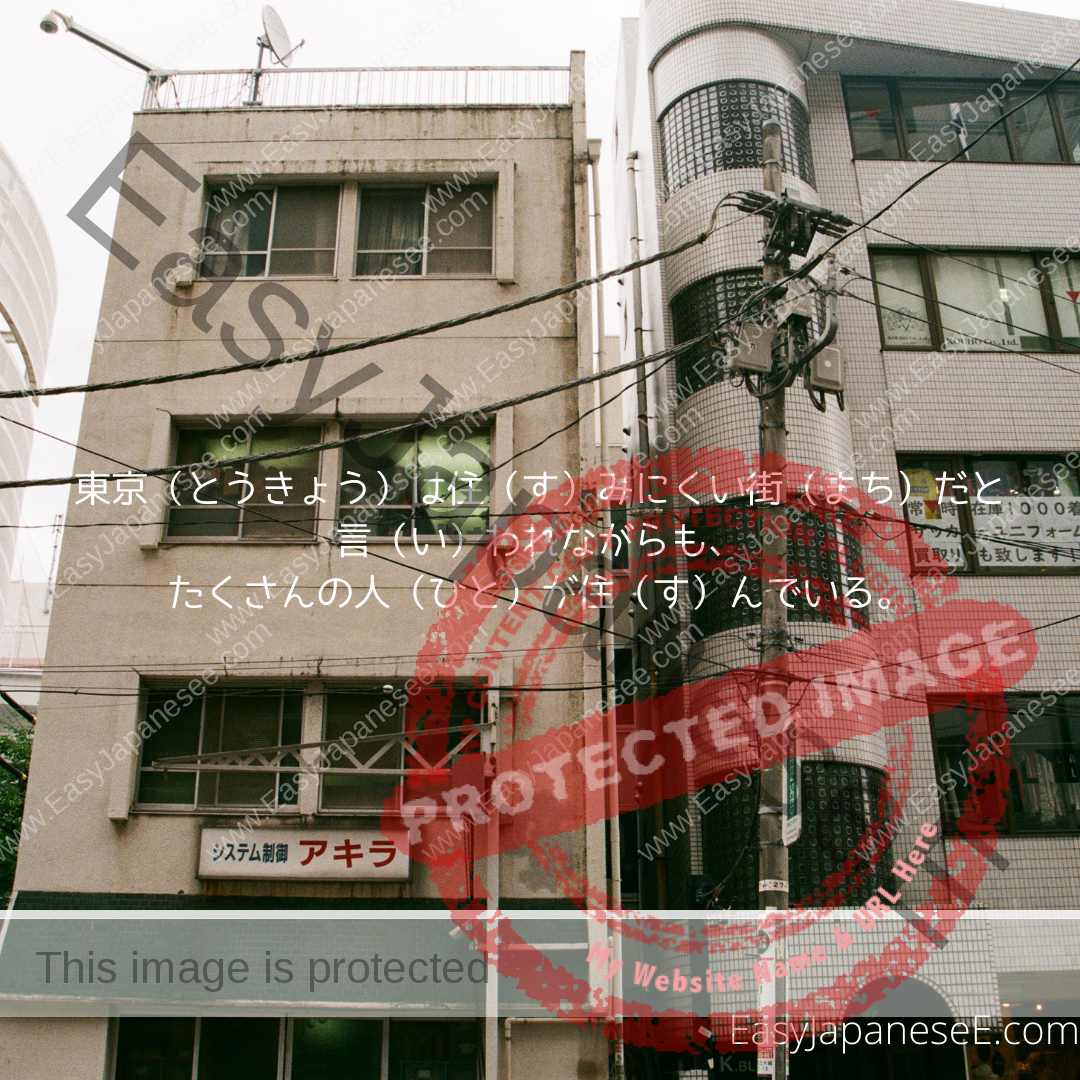
Today’s Grammar Point: ~ながら/~ながらも
I talked about the multitasking ながら in this post but today I’m going to talk about ~ながら that means “in spite of ~,” “although ~,” etc. The “~” part is usually a verb or phrase that describes a condition, rather than a momentary action. Just like the multitasking ながら, the subject (the doer) of both verbs before and after ながら is the same person. With this meaning, you can add も to stress the “adverse” feel and make it sound a bit more official. ~ながら and ~ながらも both are more often used in writing than in speech.
Connections
- [verb stem] + ながら(も)
- [てform verb] + い + ながら(も)
- [いadj] + ながら(も)
- [なadj] (+で + い) + ながら(も)
- [noun] (+で + い) + ながら(も)
Examples
東京は住みにくい街だと言われながらも、たくさんの人が住んでいる。
Although it is said that Tokyo is a difficult city to live in, many people live there.
身体に悪いと知りながら、タバコを吸っている。
I smoke, knowing that it is bad for my health.
止めた方がいいと思いながらも、なかなか止められない。
I think it’s better to stop it, but it’s hard to stop.
父は病院にいながらも、仕事をし続けた。
My father continued to work even though he was in the hospital.
鈴木さんは、赤ん坊がいながら、赤ん坊の世話は奥さん任せだ。
Mr. Suzuki has a baby, but he leaves the care of the baby to his wife.
両親に学費を出してもらいながら、ジョンさんはアルバイトに忙しくて、大学に行っていない。
John is busy working part-time and isn’t going to college, even though his parents are paying his tuition.
ジョンさんは結婚していながら、毎晩夜遅くまで外で酒を飲んでいる。
Even though he is married, John stays out drinking until late every night.
身体に良くないと聞いていながら、いつまでたってもタバコが止められない。
I heard that it’s not good for my health, but I cannot ever stop smoking.
ジョンさんは背が低いながら、バスケットボールがすごく上手だ。
Although John is short, he is very good at basketball.
父は元気ながらも、最近は物忘れがひどい。
Although my father is fine, he has been terribly forgetful these days.
姉は母親でいながら、仕事もバリバリこなしている。
Although my sister is a mother, she is also very busy with her own work.
If you liked this article, please share it with your friends using the social media buttons below. Also, your clicks on ads on this page help covering the cost of running this website. Your support will be much appreciated.

